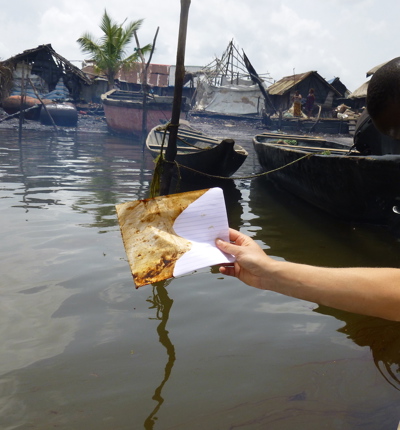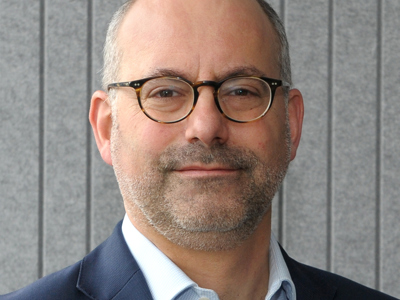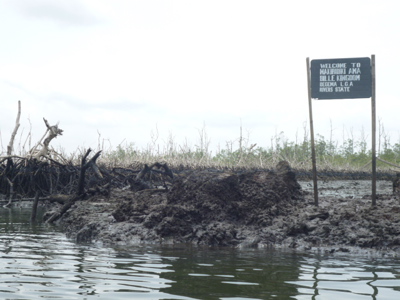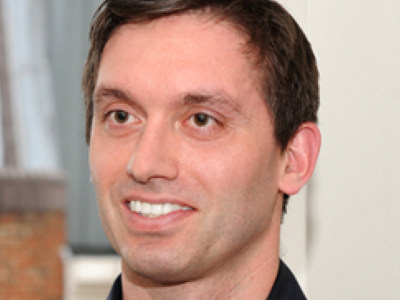
Court of Appeal hears Shell Nigeria oil spill appeal which will have major implications for future environmental claims
The Court of Appeal is hearing the case of two rural Nigerian communities who allege the oil giant Shell caused devastating pollution to their land. The case will have major implications for the viability of similar environmental claims in future.
Posted on 08 October 2024
The appeal, being heard from 8-11 October 2024, centres on what people taking legal action are expected to prove at the very start of an environmental claim. Lawyers for the two Nigerian communities believe that, unless overturned, a High Court ruling in the case will make it almost impossible for people to bring environmental claims over repeated incidents of pollution in the future.
The High Court ruled in March 2024 that, because the claimants have been unable to link each spill to each incident of damage, the claims should be treated as a “Global Claim” - a type of legal action previously only used in contractual disputes in the construction industry.
This means that the court now considers the case to be an “all or nothing” claim, meaning the communities must prove that Shell was responsible for all the pollution that has impacted their environment. If there were any other sources of pollution for which Shell was not responsible, the entire claim would fail. Therefore, Shell could be responsible for 95% of the oil pollution, but if 5% came from another source it would mean the claims would fail altogether.
More than 13,000 members of the Bille and Ogale communities in the Niger Delta say their environment and their ability to farm and fish have been largely destroyed by years of widespread oil pollution, allegedly caused by Shell plc’s Nigerian subsidiary SPDC. The communities say they were each subject to over a hundred oil spills from Shell Nigeria’s infrastructure which has devastated their land, waterways and drinking water.
More than 13,000 members of the Bille and Ogale communities in the Niger Delta say their environment and their ability to farm and fish have been largely destroyed by decades years of widespread oil pollution, allegedly caused by Shell plc’s Nigerian subsidiary SPDC. The communities say they were subject to at least a hundred oil spills from Shell Nigeria’s infrastructure which has devastated their land, waterways and drinking water.
The hearing, from 8-11 October, considers the communities’ appeal against a High Court ruling made on 15 March 2024 which required each of the 13,000 claimants to prove which specific oil spill or leak caused precisely what environmental damage at the start of the case, before any expert evidence has been ordered.
The communities argue that the High Court expects them to do the impossible, since they are simply unable to link each polluting event to precise incidents of damage without expert evidence and disclosure of documents by Shell. All each of the claimants know is that their waterways and drinking water became polluted over time, they cannot identify precisely which spill caused precisely what damage at such an early stage in the claim.
The communities’ lawyers at law firm Leigh Day argue in the appeal that this type of claim is inappropriate for environmental claims as it imposes an impossibly high burden of proof on claimants at the start of proceedings.
Members of the communities fear the ruling could have wider implications, making it impossible for victims to bring similar environmental claims in future, unless they can prove the same polluter was responsible for all the pollution that has impacted them.
They add that the current ruling also risks sending the wrong signal to polluters since the more instances of pollution a company causes, the more difficult it will be for victims to identify which event caused them harm and therefore hold the company legally responsible.
Leigh Day international department partner Dan Leader said:
“It has been ten years since these two Nigerian communities first brought their claims in the UK courts and already many of our clients have died while awaiting justice.
“Our clients have already had to fight all the way to the Supreme Court to get a ruling that the UK Parent company, Shell plc is potentially liable for the environmental devastation they have suffered. Shell has now tied the case up in knots all over again and it has barely moved forward since the communities’ Supreme Court victory in 2021. We hope that the Court of Appeal will now cut through the issues to allow the claims to finally proceed to trial.
“Our clients are being asked to pinpoint exactly which oil spill or leak caused which incident of pollution on their land at the very outset of their claims. Yet, the sheer scale of the pollution caused by Shell’s subsidiary over many years makes this an impossible task.
“This is a critical appeal for environmental claims going forward. If the “Global Claims” test stands, it is hard to see how claimants can bring complex environmental claims arising from multiple and repeated polluting events.
“The court’s current position seems to send the message to polluters, ‘pollute regularly over a long period of time if you want to get off scot-free – that simply cannot be right.”
Izzie McIntosh, climate campaigner at Global Justice Now which campaigns alongside the Bille and Ogale communities, said:
"This case is part of an ongoing battle that could be an important step for the clean-up of widespread oil pollution and for the survival of the communities bringing it. It has wider impact too – UK-based corporations with substandard operations in the global south are enabled to rake in billions while allegedly wreaking horrific devastation on people’s lives and homes.
“The more than 13,000 people taking Shell to court have spent years bravely fighting back. Their actions could help to build a world where corporations can no longer act with impunity in the name of profit, while remaining sheltered from the legal consequences of the destruction they allegedly cause. For a just and sustainable future, Shell and others like it must be held to account. We stand in solidarity with the Ogale and Bille communities every step of the way.”

Daniel Leader
International human rights, business human rights and corporate accountability lawyer

Breakthrough for Nigerian community in Shell pollution case as High Court orders the oil giant to disclose documents it has been withholding for more than two years
The High Court has ordered Shell Plc (the UK based parent company) and its Nigerian subsidiary, Shell Petroleum Development Company of Nigeria Limited (SPDC) to disclose documents that the court says could relate to the company’s liability for oil spills between 2011 to 2013 that devastated the Bille community’s land.


